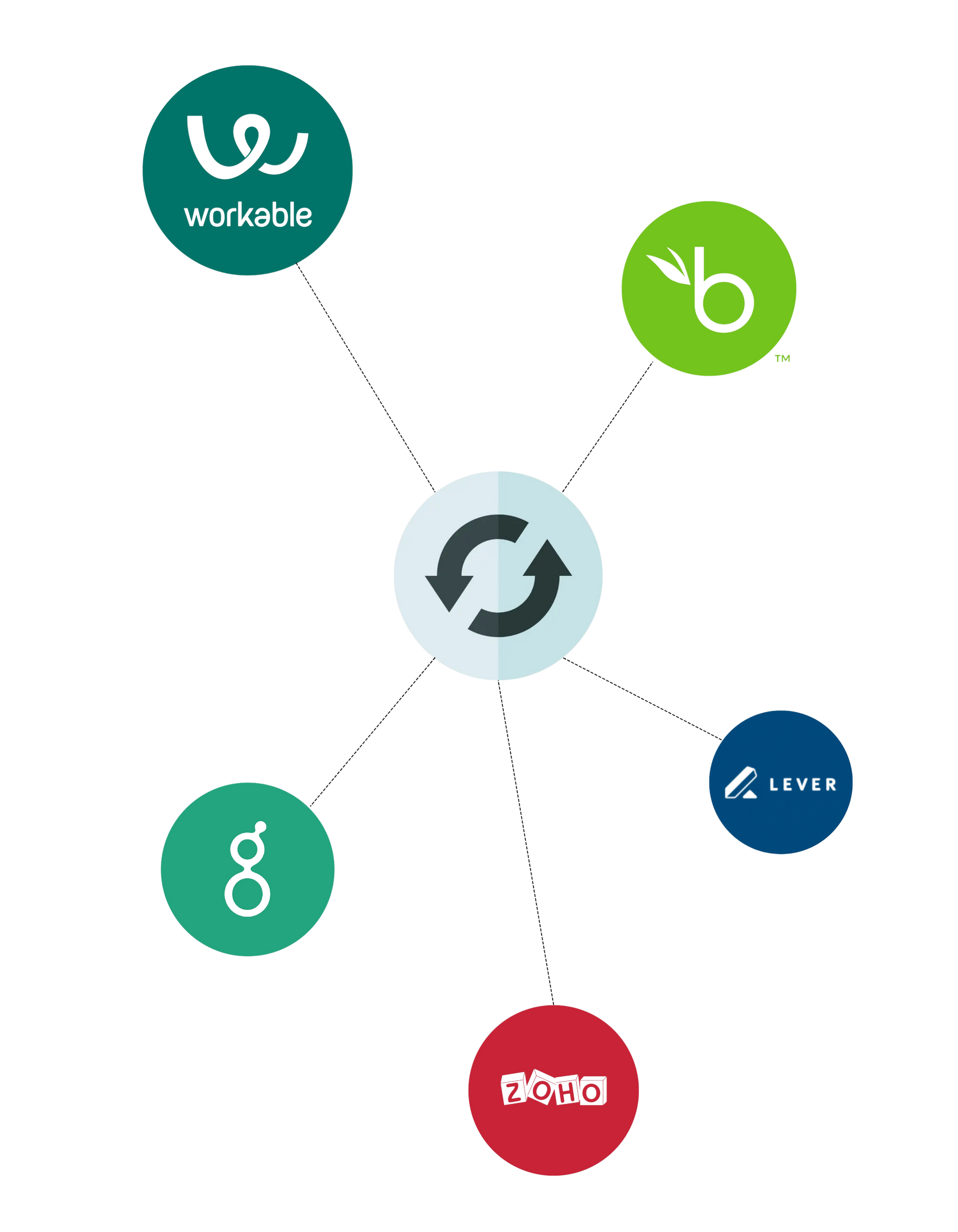Hiring in Greece: How to Hire Employees in Greece

Hiring employees in Greece comes with a unique set of labor laws, tax regulations, and employment practices, all critical for accurate payroll management.
This guide provides an overview to help employers understand the key aspects of hiring in Greece, ensuring compliance and successful recruitment.
Understanding Greek Labor Laws
Firstly, you need to understand the basic stuff.
Employment Contracts
In Greece, employment contracts can be either fixed-term or indefinite.
Fixed-term contracts must specify the duration of employment, while indefinite contracts provide ongoing employment until either party terminates the agreement, usually (not always) following a probation period.
It is mandatory to have written contracts outlining the terms and conditions of employment, including job description, salary, working hours, and any benefits.
Necessary Documents
- Work Permits: Currently, it is mandatory to have a work permit to work in Greece for people who are from non-European Union countries. The employer gives the necessary approval and the employee must obtain the permit along with a valid passport, employment contract, proof of professional competency, health insurance, and clear criminal check certificate.
- Visas: EU citizens do not need a work visa while the ones who are citizens of third countries have to get a work visa through the employer in Greece.
- Registration Certificate: Foreign EU citizens in Greece have to register their residence with a registration certificate obtained from the local police station if they intend to stay in the country for more than three months.
Legal Essentials Peculiar To Employment Contracts
- Employment Contract: A work visa demands a well-structured job contract as a key piece of paperwork. In it, the position, wage, and expected period of employment are stated.
- Terms and Conditions: Employment contracts also have to contain provisions agreements, employment or service conditions, union and employee representation, industrial relations, discrimination, maternity and family leave rights, and business transfers.
- Working Hours: This is in compliance with the legal provisions on working hours, which permit a maximum of 40 hours per week or 8 hours per day ¹.
- Leave and Holidays: Employees also have rights to 20 days paid annual leave and 12 paid public holidays for employees who worked for over 3 months.
Step-By-Step Guide To Hiring In Greece
Hiring employees in Greece can be a straightforward process if you follow the right steps. Here's a detailed guide to help you navigate the process:
Step 1: Posting Job Advertisements
- Job Boards: Popular job boards in Greece include Kariera, (link unavailable), and (link unavailable)
- Social Media: Utilize social media platforms like LinkedIn, Facebook, and Twitter to reach a wider audience.
- Company Website: Post job openings on your company's website to attract direct applicants.
- Networking: Leverage professional networks, industry events, and referrals to find potential candidates.
Recruitment Strategies
Consider using popular job portals such as Jobfind, and Skywalker.gr, and Kariera. gr.
These platforms offer extensive reach and various features to help employers filter and evaluate candidates efficiently, crucial for managing global payroll systems. Leveraging these resources can significantly enhance your recruitment process.
All companies that are looking for Greek employees can link their ATS with us and find people right away! Isn't that awesome?
A highly effective platform to use is Loopcv, which connects employers with jobseekers efficiently, streamlining the hiring process for employers in Greece.
It provides an easy and fast hiring process by offering automated job matching, which can save employers valuable time and resources, making it an asset for managing payroll.
Step 2: Screening Candidates
- Resume Screening: Review resumes and cover letters to ensure candidates meet the job requirements.
- Phone or Video Interviews: Conduct initial interviews to assess candidates' skills and experience.
- Assessments and Tests: Use skills assessments and personality tests to further evaluate candidates.
- Reference Checks: Verify candidates' previous work experience and references.
Step 3: Conducting Interviews
- In-Person Interviews: Schedule face-to-face interviews with shortlisted candidates.
- Behavioral Questions: Ask scenario-based questions to evaluate candidates' problem-solving skills and work approach.
- Technical Questions: Assess candidates' technical knowledge and expertise.
- Company Presentation: Provide an overview of your company, its values, and expectations.
Step 4: Onboarding New Employees
- Job Offer: Extend a job offer to the selected candidate, including salary, benefits, and contract details.
- Employment Contract: Prepare and sign an employment contract outlining the terms and conditions of employment.
- Orientation Program: Develop an orientation program to familiarize new hires with the company culture, policies, and procedures.
- Training and Support: Provide necessary training and support to ensure a smooth transition into the new role.
Greece Employment Laws And Contracts
Promotional Discrimination can either be of fixed term or indefinite depending on the employment contract provided in Greece.
Fixed-term contracts require a clear statement of the length of the contract of employment while for an indefinite contract, the employee is automatically employed until the contract is ended by notice, or in some cases summary dismissal will occur after a probationary period, although the word probationary is often misleading.
Employment relations require the execution of written contracts that indicate the company’s expectations of the employee and vice versa describing the responsibilities of the employee, remuneration, working hours, and other fringe benefits if any.
Working Hours And Overtime
The working hours in a week in Greece is 40 which is divided into five days of working.
Employers may require employees to work five hours extra weekly, proposals must be paid at 120 percent of the usual rate. Any additional hours worked in the overtime are paid at the higher rates and should be within the legal maximums.
Minimum Wage And Salary
According to the latest changes, the minimum wage rate in Greece is determined by the government and revised from time to time. New minimum wage rates have been changed in Greece with effect from 01 April 2024.
The previous cost for general workers was €34. 84 to €37. €40,000 maximum), so it is 3,45 euros per day and 780 euros maximum. 00 to €830. 00 per month; and. For technicians, craftsmen start at 34 EUR. 84 to €37. 07 per day. source
It has become a fixed law that employers have to pay employees wages that which not less than minimum wage it has set a legal benchmark that employers have to meet or exceed while computing employees' payroll.
Greek employees are required to be paid their 13th and 14th salaries, provided in the forms of Easter, Summer, and Christmas bonuses, during the respective season.
Benefits Of Hiring In Greece
There are several factors that make Greece attractive to talents and employers who seek to hire them. The country has a well-educated and trained human capital and has a niche in science and numerical ability strengths or STEM.
Most Greek professionals are dedicated, flexible, and have good command of foreign languages which is actually an advantage because the organization can always find a way to benefit from it.
The data on pay satisfaction reveal that the country has adequate wages, profits, and bonuses in which the average monthly pay ranges to €1,400.
Also within the legal framework of the Greek state, incentives are offered to the business world including fiscal and various other incentives, subsidies, and funding of research and development among others, making it easy for companies interested in venturing into the country.
Paid annual leave is another legal entitlement that applies to employees in the country, and like all other aspects of human resource management compensation and benefits, documentation must reflect the number of vacation days that an employee is legally permitted to take based on employee seniority.
For example, the number of paid days off is fixed at 20 for the initial year of work and is raised to 22 after a third year, so the records to be provided to the payroll must be updated.
Sick leave also has a provision based on the number of years an employee has served with up to six months of sick carry forward for those who have served for 15 years and above.
Employment legislation in the country does allow for provision for parental leave; as the law on the books establishes that mothers are to be granted 17 weeks of paid leave while fathers can be granted 14 days of paid paternity leave post the birth of a child or adoption.
Parental leave is also for four months, and it belongs to both parents! It is also known as ‘family leave,’ which is bestowed on parents, following mommy and daddy bail time to maintain and nurture their young ones without risking their livelihoods.
Indeed such a policy is available in all EU Member States and in the Greek case it is referred to as the "Άδεια χωρίς αποδοχές".
The policy of parental leave is designed and eligibility rules are different in each member country of the EU Union and it is important to realize that women and men in the EU are not all entitled to be on parental leave.
Moreover, the employees may opt for a family emergency to tackle their family issues while still being able to handle their duties, this is under the employer of record.
About The Termination And Severance
Taxes And Payroll In Greece
Frequently Asked Questions
1. Why should I consider Greece for hiring remote employees?
Greece is an ideal choice for finding remote employees in Greece due to its skilled workforce, competitive salary rates, and favorable employment regulations.
By hiring employees in Greece, you can tap into a pool of talented professionals who can contribute effectively to your business.
2. What are the benefits of hiring employees in Greece?
When you hire employees in Greece, you can benefit from their strong work ethic, excellent communication skills, and diverse cultural perspectives.
Additionally, remote employees in Greece are often well-versed in English, making communication seamless.
3. How does the employment process work in Greece?
Hiring and paying employees in Greece follows a well-established legal framework that protects both the employer and the employee, the process is streamlined and efficient.
4. Are there any specific regulations for remote employees in Greece?
Employees in Greece who work remotely are entitled to the same employee benefits in Greece as those working in traditional office settings. This ensures fair treatment and compliance with labor laws in the country.
5. What are the typical working hours for remote employees in Greece?
The standard work week in Greece is 40 hours, and employees in Greece are entitled to paid public holidays and sick leave. Understanding these regulations can help you create a conducive work environment for your remote employees.
6. How can I start hiring remote employees in Greece?
If you want to hire remote employees in Greece, it's advisable to seek guidance on the employment process and employer obligations in the country.



